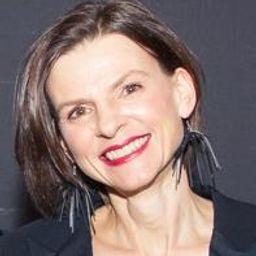
Sessions auxquelles Cynthia Cooper participe
Dimanche 5 Juin, 2016
Sessions auxquelles Cynthia Cooper assiste
Samedi 4 Juin, 2016
What if we changed our views on heritage? And if heritage has already changed? While, on the global scene, states maintain their leading role in the mobilization of social and territorial histories, on the local scale, regions, neighbourhoods and parishes have changed. Citizens and communities too: they latch on to heritage to express an unprecedented range of belongings that no law seems to be able to take measures to contain, often to the discontent of...
This festive event will offer delegates a taste of one of the iconic dishes of Montreal, the smoked meat sandwich, imported by Jewish immigration from Eastern Europe in the early 20th century. In particular, the tasting will allow a discovery of the products of the renowned international institution Schwartz's, the Hebrew Delicatessen for which Montrealers and tourists alike are willing to wait in long line-ups. During the tasting, “Chez Schwartz,” a documentary produced by Garry B...
Most of what we experience as heritage emerges into conscious recognition through a complex mixture of political and ideological filters, including nationalism. In these processes, through a variety of devices (museums, scholarly research, consumer reproduction, etc.), dualistic classifications articulate a powerful hierarchy of value and significance. In particular, the tangible-intangible pair, given legitimacy by such international bodies as UNESCO, reproduces a selective ordering of cul...
Dimanche 5 Juin, 2016
In endeavouring to answer the question "What does heritage change?" this proposed session, "Fashioning Heritage," will call for papers that critically examine the way in which one of the main functions of dress is to locate or position individuals and communities in space and time. The temporal realm can be conceived as personally transitioning from and through certain life stages, being culturally defined as well as conceiving gender differently by dress and textiles. Transitions are visuall...
"What does heritage change?" is a multifaceted question to which the answer(s) are in primary respects related to real-life negotiations among different groups of citizens, cultures, races, ethnic groups, sexual identities, and social classes about received, official and/or widely accepted or accomodated intangible attributes, cultural traditions, historic monuments, buildings, and other transmitted or revived historical legacies. Heritage designated by and for whom, for what motivations, an...
Lundi 6 Juin, 2016
The field of heritage has emerged as a key site of reflection. Influenced by shifts in the academy (e.g., post-colonial, post-structural and feminist theories), heritage scholars are bringing increased attention to the deployment of heritage as both a conceptual category and a contested field of power and discourse. Nevertheless, significant challenges remain in communicating what comprises the theoretical and methodological toolkit of heritage studies. Scholars are still mapping out the nuan...
Mardi 7 Juin, 2016
Milan Tanedjikov (Concordia University) and six LaSalle College students. A Material Culture & Fashion Exhibit June 6 and 7 The garments are part of a collection, titled Odesza, designed by six LaSalle College students under the artistic direction of Milan Tanedjikov. The collection: an artisanal Montreal-based clothing collection that is part of the slow-fashion movement. The clothes are made by hand with environmentally friendly material and workers are ...
The Canadian Museum for Human Rights opened to the public in September 2014. Yet this "first museum solely dedicated to the evolution, celebration and future of human rights," met serious criticism from a variety of stakeholders before it even opened its doors. These stakeholders included Indigenous and Ukrainian communities, anti-poverty activists, feminists, gay rights activists, and disability advocates who questioned some of the museum's key curatorial choices in framing issues of righ...
To date, very little literature explicitly explores the relationships of museums and heritage to historical consciousness, despite the overlapping concerns shared by these respective fields. This roundtable addresses the subject of museums as sites of historical consciousness by reflecting on a recent book project. Museums as Sites of Historical Consciousness: Perspectives on Museum Theory and Practice in Canada (working title, UBC Press, 2016) examines (1) ways that museums create and sha...







